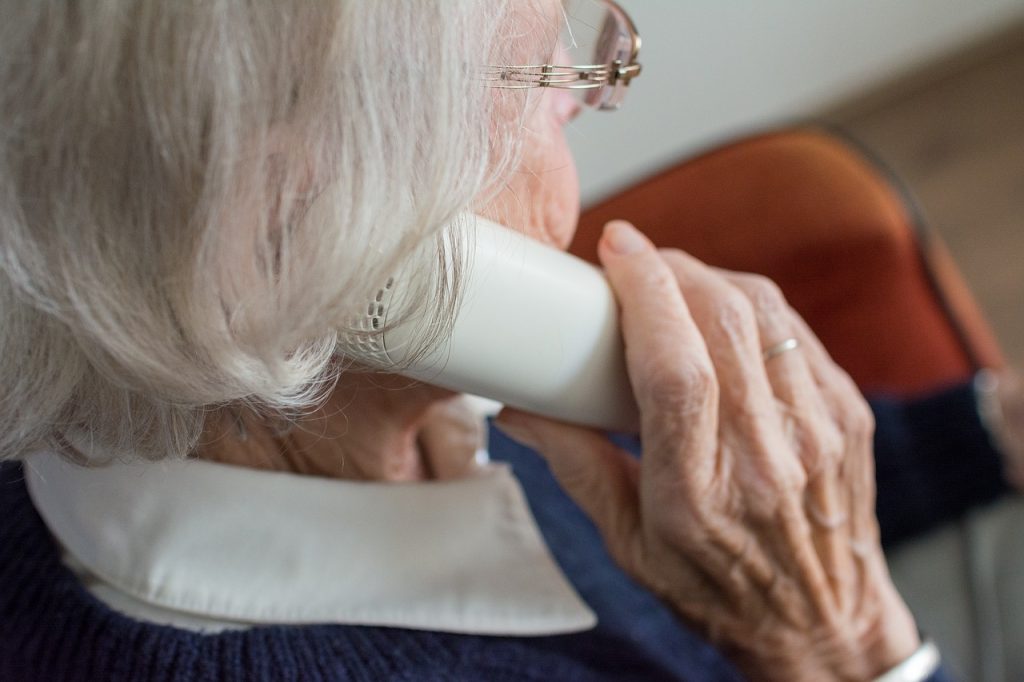
He was 83 when he realized that a stagnant life is a lonely one, even with family around. He never thought that emotional issues would be one of the things he needed to consult with a counselor. His name is Cliff Benton. He lives in Duvall, Washington and is a retired baker who never once thought in his life that he would need therapy at his age.
“I don’t think I ever needed it,” said Mr. Bennett.
He wasn’t diagnosed with depression, anxiety, or any mental health problem. However, he suffered from migraines and different difficulties throughout his life. The death of his former wife, the demise of his colleague, and how his children and grandchildren are surviving life are just some of the things which cause him to overthink.
“I turned 80, then suddenly, I don’t know what to do with my life,” Mr. Bennett said. “I needed to look for other things that my body is capable of. And then I realized, I needed help.”
He began seeing a psychiatrist in Valley Street, Duvall. Mr. Bennett visits the clinic once every month for a 45-minute conversation on what problems are bugging him in his current life. “The doctor has made me realize some things I never thought about in life. And it’s making a change in the way that I live since then.”

Mr. Bennett is just one of the many people who sought emotional help in their senior years. A lot of people never thought of seeking psychological help in their younger years. But since in today’s time, the society is already recognizing the need to consult their emotional problems with experts especially for those who are already in their golden years. In that way, they are able to live life more comfortable and less stressful.
“Many people turn to therapy because they feel as though they are not functioning.” Stacy Donn Cristo, LMHC said. Professors and researchers concluded that more people in their golden years are visiting psychiatrists. Usually, people in their 80’s and older seek peace and comfort from their family, church and other resources but they still end up in clinics wanting to live longer and live life more comfortably.
It was, later on, discovered that some of these older patients are suffering from clinical depression. A report showed that 6.5 million Americans who are over the age of 65 have depression, yet several are still battling with mental health problems and are left unaddressed for many years.
These concerns usually rise from financial problems, new living environment, the death of loved ones, other severe health problems and even in living their daily lives. Judith Livington, a clinical social worker, said several stresses can bring up issues which are not solved in the past. “If someone has never dealt with issues in the past, it’s never too late to consult with an expert.” Molly Bowman, MS, LPC used to say, “Therapy is intended to be a place to carefully and safely start to turn toward whatever it is you’ve got.”
Comfort will be one of the reliefs one would achieve from acknowledging their psychological problems with the help of experts, and that is a significant change in society. Before, people look at patients who seek psychiatric help as people who are crazy. Hence, they prevent admitting to themselves that something is wrong.
However, these negative views have changed over time, along with a full acceptance of the presence of mental health problems. Before, people thought that when older people act weirdly, it’s because they have dementia. But, the awareness of having depression, anxiety and other disorders may also be possible.
A report found that in 2020, about half of American in the age of 50 to 70 will be at risk due to alcoholism and drug addiction compared to a report in 1999 with only 9 percent.
Medical professionals also concluded that older people would have more difficulty receiving help since their mental process would be lacking given that they are no longer educable compared to younger patients.
Treating psychological problems may be hard for some patients. For instance, the use of antidepressants for elderly people may only give them unpleasant effects and adds to the many medicines they take every day. Some feel like they just have little of their time to comply with their therapy.
On the other hand, many older patients embrace their therapy and focus on techniques to alter their thought patterns and behaviors to increase the quality of their life. Experts conclude that older people have higher satisfaction rate in therapy compared to younger ones due to the undivided attention given to their treatment.

Lily Harmon, a retired factory worker, experienced the death of her husband in the age of 85 which caused her to live in an independent facility in Seattle.
“It was tough for me, and I couldn’t even find friends here. I was having a dreadful time living here,” Ms. Harmon said.
Ms. Harmon’s psychiatrist said that these problems are not unusual for people of her age and in the same experience. Ms. Harmon was prescribed with Xanax and was put in touch with other social workers. Slowly, she was able to keep up and the strategy, little by little, is working for her condition.
An older patient requires 15 to 20 sessions of therapy which also depends on if the patient is dealing with decade-long life problem. Nevertheless, these issues can still be surpassed.
Julie Gilliam, after battling with depression for more than 5 months which caused her to just slumber in bed, she finally went to see an expert who gave her proper medication. She was given behavioral techniques such as trying to dress up every three hours.
Fortunately, the therapy worked and made her feel well. “Therapy can be a place where a person can feel fully accepted for who they are, with all their unique abilities, quirks, gifts and talents and where their challenges can be understood in a compassionate way,” explains Karla Helbert, LPC, E-RYT, C-IAYT.
“I realized that even in my age, I am creative, smart and artistic. I was able to adjust my thoughts and have less anxiety than before,” Ms. Gilliam said.
Often, what older people really need is to recalibrate their thoughts to put life in a better perspective.
Mr. Bennett, Ms. Harmon, and Ms. Gilliam’s experiences may not be too terrible after all and should not be blamed on themselves. If things are seen differently away from old age, then they would be relieved from the difficulties they are experiencing for decades.
“Everybody has those thorns in their life – and it’s how we handle these pains which would show the real meaning of life,” Mr. Bennett said. “I realized that my behavior was essential and that I have to be optimistic always.”
Mr. Bennett wished he had sought expert’s help before, but he claims that he can’t dwell on the past, but only live on what’s present and prepare for the better future.